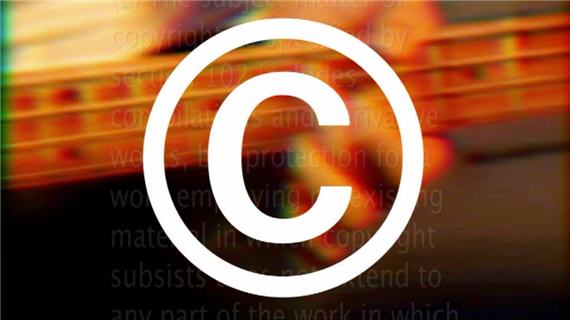Google Music – 20,000 Songs on the Cloud
The cloud wars just got more interesting with Google’s entry into the space.
MediaMemo (“Google Launching Its Cloud Service Tomorrow, Without Big Music’s Approval“):
You’ve seen Amazon’s cloud music service. Now get ready for Google’s music service. They’re going to look pretty similar.
Google is preparing to show off a new music service at tomorrow’s I/O conference. And like Amazon’s launch earlier this year, the company is doing it without the approval of the major music labels and publishers.
Google Music will roughly mirror what Amazon showed off in March: A service that loads copies of music that users already own into an Internet-based server, which lets them stream them the songs over the Web and onto Android phones and tablets. The Wall Street Journal first reported on Google’s plans.
Google has originally planned a more robust version of the concept, which it was going to introduce with cooperation from the labels. But as I reported last month, talks between Google and the labels, which started a year ago, have hit an impasse, and Google has apparently decided that it would rather launch a reduced version of a music service than none at all. “Unfortunately, a couple of the major labels were less focused on the innovative vision that we put forward, and more interested in in an unreasonable and unsustainable set of business terms,” says Jamie Rosenberg, who oversees digital content and strategy for Google’s Android platform.
The lack of licenses means that Google’s music service won’t have at least one thing that Amazon already has: The ability to sell songs to consumers. On the other hand, Rosenberg says that his service will have features that Amazon doesn’t, including a service that automatically creates playlists for users.
And at least initially, Google’s offering will offer more free storage than Amazon does: The service which rolls out in an invite-only beta tomorrow, will offer users the ability to store up to 20,000 songs without charge. Amazon’s service launched with 5 gigabytes of free storage, or the rough equivalent of about 2,000 songs, though it offered users the chance to upgrade to 20 gigabytes for a nominal fee.
Rosenberg says he expects Google Music to roll out to all U.S. google users within weeks of launch. He wouldn’t offer specifics about future pricing plans, and said they might depend on the reception of the product’s launch. “I think we’re honestly going to learn from the beta experience, and think about opportunities for the long-term model,” he said. But Rosenberg suggested that Google Music was designed to be at least partially free. “I think as Google typically does, I think the free aspect will continue to be very generous,” he said.
One would think that 20,000 songs would be enough storage for most people. I have hundreds of old CDs which I’ve mostly converted to mp3s and stored on my hard drive; I doubt it amounts to more than 20,000 songs.
What apparently has the music companies fuming isn’t so much the storage aspect–who cares how people store their music?–but the technological implications. Most obviously: it really makes no sense for Google to store several million copies of any particular song. After a digital scan to ensure that this particular file is not unique, why not simply catalog which tunes a given user has uploaded and then deliver it to him upon demand? And, presumably, once the songlists are on the cloud, it would be a simple thing to “share” one’s collection with hundreds of others, essentially giving everyone access to everyone else’s songs. Which is to say: All songs there are on Google’s cloud.
Google denies this:
WSJ (“Google to Unveil Online Music Service“):
Users of the service are expected to be able to listen to songs they have uploaded to the service in a so-called streaming mode but won’t be able to download the files themselves. That limit appears to be a bid by Google to hinder the service from being used to spread pirated music.
But the implications are obvious:
Computerworld (“Google to unveil Music Beta by Google Tuesday“):
The news will answer months of speculation that Google has been working on a cloud-based music service. Industry analysts have long speculated thatGoogle could be developing a social network, and that music could play a big role in it.
“Certainly, this could be social because you could share what you’re listening to with all your friends,” said Rob Enderle, an analyst with the Enderle Group. “This certainly could be used as a first step to Google starting a social network.”
PCWorld (“Google Reportedly Launching Online Music Locker Service“):
To avoid people misusing the service for music piracy, Google will not allow users to download music from the online lockers, and will only allow them to listen on their devices to music streamed from the online storage.
NYT (“Google to Unveil Service to Let Users Stream Their Music“)
Neither Google’s nor Amazon’s cloud players make true many Web companies’ dream, which is for people to be able to listen to their music whenever they want, on any device. Ideally, Web companies would keep a copy of every song in the cloud, creating a kind of Internet jukebox, and give users instant access to those they own without uploading. But that would require licenses.
“This whole upload thing just seems like a significant barrier to wide consumer adoption, because even with broadband it just takes a long time” to upload, said David Pakman, who invests in digital media start-ups for the venture capital firm Venrock, and helped found a similar music service, Myplay, in 1999.
But Amazon forced Google’s hand, he said. “If you’re faced with another six months of brutal negotiations and your competitor just launched this, you just get in the market and get a lot of users.”
Mr. Rosenberg characterized Music Beta as a first step in a broader cloud music service and said Google hoped to continue negotiating with the record labels to get licenses to offer other things, like a music store that sells songs or a service that suggests new music to listeners.
[…]
Since songs stored by Google will stream from the Web, they are not always as accessible as songs stored on iPods, because people can’t listen to them in places without data connections, like airplanes. But Google stores copies of recently played songs and certain songs that users choose for offline access.
The music labels have long argued that they should be paid when people listen to songs on various devices. Google, Amazon and Apple, along with start-ups like Spotify and the now-defunct Imeem, have struggled to strike agreements.
This notion is patently idiotic. It’s well established that, having purchased a copy of a song, the owner is entitled to make multiple copies of it for personal use. In the old days, that meant transferring a song from vinyl or cassette to a blank cassette, whether as an entire album or a “mix tape.” Nowadays, it typically means one’s computer, smart phone, or personal music device. The notion that record labels should get paid for each copy–even though it costs them nothing–is insulting.







The notion that record labels should get paid for each copy–even though it costs them nothing–is insulting.
Since the .mp3 format took off in the mid-1990s, along with the rise of P2P file sharing, the record labels have adopted insulting their customers as its business model. Not that they didn’t do it before that, but it seems that’s all they want to do now.
The cash cow is running out of milk, or something. Watch the record labels grow increasingly desperate.